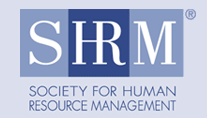Sexual Harassment Case Studies
Avoiding and responding to sexual and other harassing behaviors is top of mind for all responsible organizations. Harassment is not just a legal issue, but also a hardcore business issue—and HR alone does not “own” civility. Harassing and disrespectful behaviors, even if not unlawful, harm employees as well as other individuals and organizations. Those at the level of supervisor and above must do more than avoid unacceptable conduct; they must be active bystanders. Yet bystander interventions, if not thought through carefully, can escalate a problem. In some areas, what is unacceptable is (or should be) obvious; but there are also potential gray areas, such as hugs and compliments. Some individuals, concerned about being perceived as engaging in sexual harassment, are avoiding or limiting their exposure to those who they fear may bring a claim against them. Discriminatory avoidance, however, cannot be a strategy to avoid sexual harassment claims.
Learning Objectives:
- Breaking down bad conduct into different categories (e.g., an inappropriate comment on someone’s appearance, versus a sexual assault).
- Behaviors that may or may not be okay, depending on the circumstances (e.g., a hug).
- How those at the level of supervisor and above should respond in the moment to complaints, as well as to sexually harassing conduct that they see, hear or become aware of—even in the absence of a complaint or objection.
- Promising practices for supervisors to set the right tone in the middle; the tone at the top is not enough.
- Envisioning some of the adverse consequences of the “great awakening” around sexual harassment (e.g., men avoiding women to avoid claims), and ways to mitigate risk.
- Suggested strategies for increasing buy-in from front-line supervisors and other business leaders; HR cannot effectively fight this battle without their support.
Jonathan A. Segal

Jonathan is a partner at Duane Morris LLP in its Employment Group. He also is the Founder and managing principal of the Duane Morris Institute, which provides training on employment issues to HR professionals, in-house counsel and other leaders.
The core of Jonathan’s practice is helping employers maximize legal compliance and minimize legal risk with regard to harassment, discrimination, retaliation and reasonable accommodations.
Over the past few years, Jonathan has focused on religion in general and antisemitism in particular. In addition to helping clients, Jonathan has delivered a number of talks on antisemitism on behalf of the EEOC as well as to field directors of the EEOC.
Jonathan has provided training to federal judges and other members of the federal judiciary on various employment issues for more than 20 years.
Find Sessions by Day
Find Sessions by Speaker
Find Sessions by Topic
- Select Track
- Business Acumen & Metrics
- Communication
- Compensation & Benefits
- Global HR
- HR Technology and Data Analytics
- Leadership & Development
- Talent
- Total Rewards
- Workplace Strategy
Find Sessions by Credit Type
- Select Credit Type
 SHRM PDCs
SHRM PDCs TBD
TBD
Find Sessions by Competency
- Select Competency
- Business Acumen
- Communication
- Consultation
- Critical Evaluation
- Ethical Practice
- Global & Cultural Effectiveness
- HR Expertise
- Leadership & Navigation
- Relationship Management
Find Sessions by Intended Audience
- Select Intended Audience
- All Levels
- Early Career
- Mid-Level
- Senior-Level

